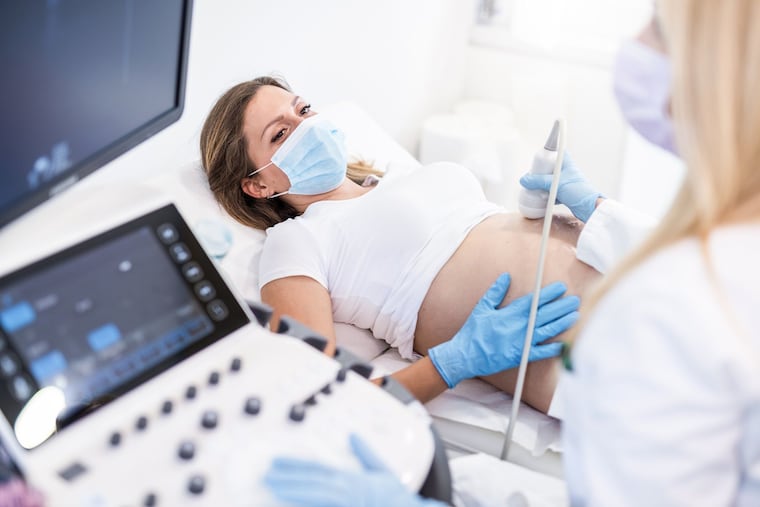Coronavirus infection may be common in maternity health professionals, study finds
Many pregnant women have asymptomatic infections, based on hospital tests done when they're admitted to deliver. But maternity care can’t be postponed. Labor and delivery can’t be socially distant.

A British study suggests that 15% of maternity health professionals — one in six — may be infected with the coronavirus without realizing it, and most of them continue to work while contagious. putting coworkers and patients at risk.
Blood samples were taken in May and June from 200 obstetricians, midwives, and anesthesiologists at two London hospital maternity units to see how many had signs of immunity to the coronavirus, though none had a previous diagnosis of COVID-19, according to the study published this week in the journal Anaesthesia.
Of the 29 who had developed antibodies signaling a past infection, a process called seroconversion, more than a third never had symptoms. The rest had mild symptoms, including temporary loss of smell — a red flag for COVID-19.
Seventeen professionals — almost 60% of those with past infections — had not stopped working because they didn’t meet government criteria for self-quarantining, namely a persistent cough or fever. The United Kingdom has since added loss of smell to the criteria, but it did not recommend masks for all workers in health-care facilities until June 15.
Recommendations aside, health-care workers report being denied adequate sick leave by shorthanded hospitals and clinics, or pressured to return to work too soon. A recent Kaiser Health News story quoted a Hackensack, N.J., nurse who was cleared to return even though she was coughing, was vomiting, and had diarrhea.
“You’re telling me, because I don’t have a fever, that you think it’s safe for me to go take care of patients?” the nurse told Kaiser Health News. “And they told me yes.”
» READ MORE: Coronavirus is changing childbirth in the Philadelphia region, including boosting scheduled inductions
The 15% seroconversion rate in the maternity professionals may sound alarmingly high — and it is when compared with the single-digit rates found in most studies of communities. But even higher prevalence has been found in other front-line health-care workers. For example, molecular and antibody testing of more than 500 workers at hospitals in Birmingham, England, revealed that 2% were infected, and a quarter had had infections that were not diagnosed.
The contrast in prevalence rates came as a surprise to the researchers who did the latest study ― the largest so far of obstetric care providers — because they reasoned that maternity work might be especially hazardous. Pregnancy care can’t be postponed, especially in the final months, and it requires face-to-face meetings with patients.
“Obstetric care has, by necessity, continued throughout the COVID-19 pandemic,” the researchers wrote.
» READ MORE: Coronavirus pandemic could worsen rising rates of postpartum depression
What might explain the maternity professionals’ lower rate of seroconversion? It turns out that many pregnant women have asymptomatic infections, based on hospital tests done when they are admitted to deliver. Fortunately, those women rarely pass the virus to their newborns. And they may have less virus in their noses, mouths, and throats than people who get sick, based on patterns seen with seasonal flu.
“It may be reasonable to extrapolate that asymptomatic individuals infected with [the coronavirus] pose a lower transmission risk to others,” the researchers speculated.
Like all coronavirus studies, the new one cannot say whether antibodies convey full immunity, or for how long. But the researchers noted that because antibody tests often miss low levels of telltale proteins, the study may underestimate the prevalence of infection among maternity professionals.
The bottom line, the researchers conclude, is that personal protective gear, hand washing, and a high level of suspicion is vital in maternity settings. They also recommend regular antibody testing of staff, and “immediate isolation of any staff who lose their sense of taste and smell, even in the absence of cough or fever.”